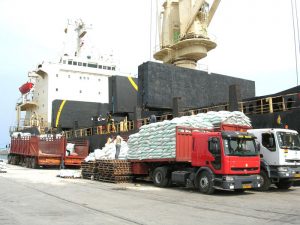Finance Minister, Ken Ofori-Atta, has explained that the only way by which imported inflation in Ghana can be minimized is if the country is able to raise more entrepreneurs to produce locally.
According to him, it is for this reason that the government is investing heavily in projects that can build an entrepreneurial society in the country.
His comments come on the back of a soaring inflation rate which currently stands at 23.6 percent, of which inflation for imported goods exceeded domestic inflation for the first time in 29 months.
The inflation for imported goods was 24.7 percent, which is higher than the 17.3 percent recorded for March while the inflation for locally produced items was 23 percent, up from the 20 percent recorded in the previous month.
Mr. Ofori-Atta was speaking at a press briefing in Accra on Thursday.
“Cabinet was quite precise about the budget and the theme of building an entrepreneurial society. So the GHS10 billion intervention where you’re going to have people create their own jobs and have work to do is going to be important and enhance productivity. Because of imported inflation, what are you going to do about food, fuel, and financing out there? The question is whether we can get our people to be more productive so that we move towards an environment where people are in control of their destiny.”
Meanwhile, industry players have intensified calls for an intervention to check the rising prices of goods and services in the country.
The Government Statistician, Prof Samuel Kobina Annim, has called on policymakers to check the alarming situation.
“We tried pointing policy makers to what they have to look at especially in light of the conversation around whether the inflation rate is heavily driven by the Russian-Ukraine war. From the disaggregation we did, we noticed that the domain that accounted for the 99 items that recorded changes in prices higher than the national inflation were food items.”
“So the Russian-Ukraine war does not have a direct impact on the rise in imported inflation. This is the perspective that we want policy makers to direct their attention to, especially asking whether monetary policies can address all these different items in the same way or you need a different sector to address some of these changes in prices.”
The soaring prices of food in the country only seems to be getting worse as the recent figures from the Ghana Statistical Service proves that food inflation was one of the main drivers of the rising inflation rate for April.
Industry players have consistently asked for government’s intervention to salvage the situation. Some like the Chamber of Agribusiness Ghana have even suggested the constitution of a National Food Security Committee that will control the supply and pricing of food commodities in the country.
The issue of transport fares also remains a big headache for Ghanaians as the country has seen a recent increment in fares by 20 percent due to the rising cost of fuel.
Many have attributed these hikes to the ongoing Russian-Ukraine war.
The rise in the inflation rate for April 2022 comes as the highest recorded since the Ghana Statistical Service rebased the Consumer Price Index in August 2019.






